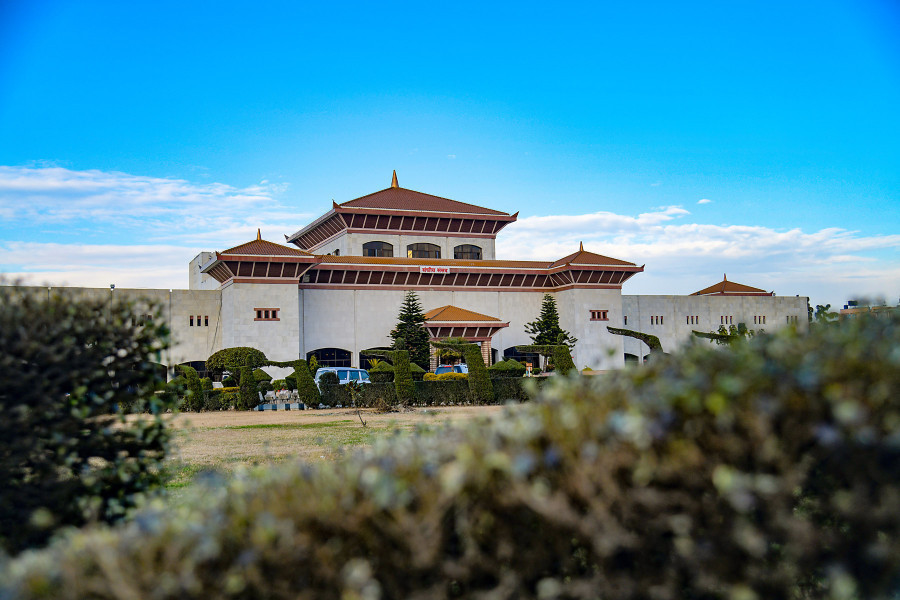Editorial
Telling it like it is
The court has made it clear that snollygosters must be thrown out.
Prime Minister KP Sharma Oli, during his tenure, left no stone unturned to derail the constitution. So defiant was he that he brushed aside an earlier court order that had called his December 20, 2020 dissolution of the House of Representatives unconstitutional, and repeated the same in less than six months.
This time around, the country’s highest court not only called the move unconstitutional, but also gave a rap on Oli's knuckles. The court also minced no words in calling out President Bidya Devi Bhandari, making a straightforward observation that the holder of the highest office should refrain from considering oneself above the constitution, and that the judiciary holds the right to correct any unconstitutional moves made by the resident of Sheetal Niwas.
The constitution is a living document. Every democratic country cherishes its top law, and those in power are mandated to make utmost efforts to implement it in earnest, uphold its ethos and protect it from unravelling. In the case of Nepal, however, the constitution, within six years of its birth, was being torn apart by those who were elected to strengthen it. The court verdict is not just aimed at Bhandari, the sitting President; it is, in fact, a precedent for all those who will hold the office in the future that as the custodian of the constitution, their first and foremost duty should be safeguarding it.
That the court has observed that there was a malafide intention in the President's role, it raises a serious moral question for Bhandari because she failed to protect the sanctity of the constitution and her office. As far as Oli is concerned, the court has made it clear that he does not deserve to continue in office because he misinterpreted and violated constitutional provisions.
Now that Oli has been shown the door, and Deuba has already been appointed the new prime minister, the focus should shift towards achieving the larger goal of saving constitutionalism and democracy. Nepal’s Supreme Court has, once again, not only rescued its parliamentary democracy, but it has also reminded one and all of the ramifications of arbitrarily interpreting the constitution to fulfil their personal and political ambitions. As the ultimate arbiter and the final interpreter of the constitution, the apex court has made it clear that the top law of the land must be explained and interpreted in such a way that it keeps the democratic ethos intact.
It is now incumbent upon Deuba to stick to the principles set by the court, which has shown that the larger goal is a forward march to democracy. The court can just show the path; it is the duty of the political parties to make democracy move on that path. Over the last three and a half years, Oli transformed himself in such a way that he became a tendency. Today, with the change of the guard, the individual holding office in Singha Durbar has been replaced, but the spectre of a highhanded and authoritarian tendency could raise its ugly head any time, and the political parties must keep a close watch on such possibilities.
In politics, leadership positions change hands, but democracy’s permanent enemies are the dictatorial, authoritative and whimsical instincts of some individuals. Nepali political parties would do well to comprehend constitutional morality and their obligations to the constitution. The court has made it extremely clear that snollygosters must be thrown out of office. It’s now up to the political parties not to let politics slip out of their hands.
As questions are already being raised against the court, with some calling its order to appoint a prime minister judicial activism, Nepali political actors must work hard to strengthen the principle of separation of powers.




 13.12°C Kathmandu
13.12°C Kathmandu














